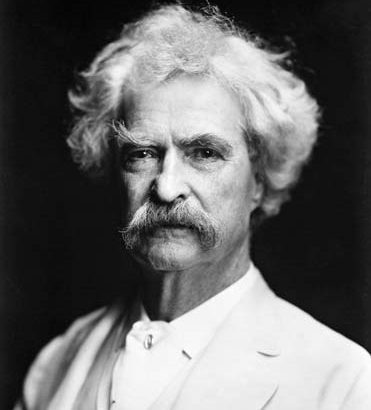
- Posted: 18 May 2015
- By: International Institute
- Comments: No comments
ENGLISH READING CIRCLE SHORT STORY OF THE MONTH ANALYSIS: “THE CALIFORNIAN'S TALE” BY MARK TWAIN
This month's story is Mark Twain's “The Californian's Tale,” published in 1893. Twain rates among the most celebrated and iconic of all American writers, and has achieved that rarified air of an author whose characters (Huckleberry Finn and Tom Sawyer in particular) have come to embody the mythos of the country they reflect. With his signature sardonic wit, quick humor, and unflinching honesty, Twain's style is perhaps the most recognizable in all of American letters.
With this in mind, we should read “The Californian's Tale” as a departure, stylistically at least. For an author whose most well-known works operate at the opposite end of the spectrum from sentimentality, this story is exceptional in the emotion it seeks to evoke. Just as with “An Occurrence at Owl Creek Bridge,” “The Californian's Tale” hides a twist at the end, though here that twist is less devious and more heartbreaking. (Warning: don't read ahead until you've finished the story!)
One line of thought that we should explore in our meeting next week is the nature of the charade Henry the Californian's neighbors keep up, and their reasons for doing so. It might be fruitful to consider as well the story's setting as we ask this, since Twain's description of place in this story lends a great deal of sentimental weight to the bizarre and poignant facts of Henry's existence. What is it that makes Henry's self-deception such an easy thing for those around him to perpetuate? What do they, the miners who live nearby, gain from the ruse, besides basic human sympathy?
These questions might, in turn, lead us to one of the central themes the story offers: the role of women, or better yet, femininity, in a place settled and worked almost entirely by men. What is Twain saying here about the relationship between femininity and civilization? Femininity and materialism? Masculinity and greed? These terms, masculinity and femininity, seem almost interdependent in this story, and their specific functions in a lonely and hostile environment challenge any sense of their being absolute or fixed. I look forward to hearing your thoughts on these questions and more at our session next week. Happy reading!
Andrew Bennett, English Reading Circle facilitator.
More details about the session at the Agenda.
Search
Categories
Recent news
-

Music from the Margins: Murder Ballads, Outlaws, and Jail Cell Lamentations – An Interview with David Burnett
18 April 2024 -

EDUCATORS AND FEMINISTS BETWEEN SPAIN AND AMERICA. NEW PEDAGOGICAL HORIZONS
October 11, 2023 -

Concerts at the International Institute – American Minimalism… and more!
September 12, 2023



